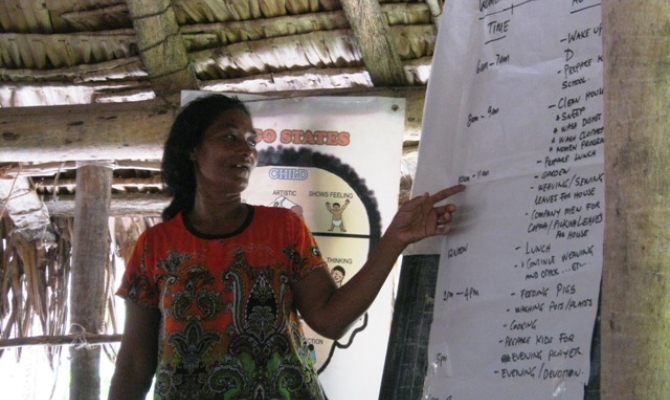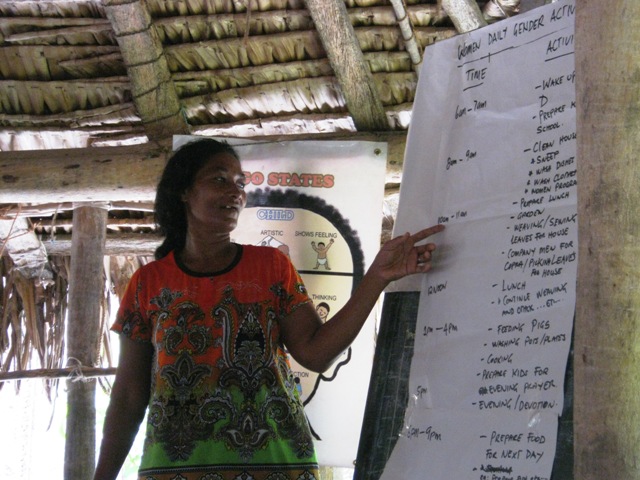
Gender is a key consideration of the Pacific Adaptation to Climate Change Project, which works to help 14 Pacific island countries build resilience to climate change with on the ground projects and activities.
The Secretariat of the Pacific Regional Environment Programme (SPREP) is an implementing partner of this project which is funded by the Global Environment Facility and the Australian Government with the United Nations Development Programme as the executing agency.
The project focuses on three key areas; food production and food security, coastal management capacity and water resource management. The 14 countries - Cook Islands, Federated States of Micronesia, Fiji, Marshall Islands, Nauru, Niue, Palau, Papua New Guinea, Samoa, Solomon Islands, Tonga, Tokelau, Tuvalu and Vanuatu - are carrying out activities that address one of these key areas.
When designing national adaptation activities, gender-sensitive criteria and indicators are one of the key sets of information that allow the project to measure impacts or benefits of the activities at national and community levels.
"The national PACC coordinators have completed gender training which helps given them a broader understanding of the concept and how it can be applied to their work on the project," said Peniamina Leavai, the PACC Project Officer.
"We've completed our work plans for 2013 and all of them have identified how they will be including gender criteria and gender sensitive indicators; now it's a matter of them carrying these out."
Some of the work already underway in 2013 will document how the concerns of all community groups were addressed in designing and implementing the project to help ensure the activities to help people adapt to climate change are successful.

The range of adaptation activities under the project is broad. In the Solomon Islands, the PACC project focuses on food security by engaging men and women in planting salt tolerant varieties of taro and cassava and providing women with alternative methods of processing cassava. For example, week-long sun-dried cassava that has been grated or sliced can be stored for up to a year, providing supplies for communities in times of long droughts and where vulnerable atoll-based food gardens have been destroyed.
In Tuvalu, the location of a 700,000 litre community-water tank has been determined by considering the special-access needs of the young and of the elderly, men and women.
"Work that has been carried out by the project and collaborating programmes and projects in country has, in different ways, captured the needs, interests and concerns of both men and women. The challenge now is to document these gender practices to guide future projects," said Mr Leavai.
"Ultimately, we want to ensure that our PACC activities have a positive impact on as many Pacific people as possible. It only makes good sense that gender is a priority."